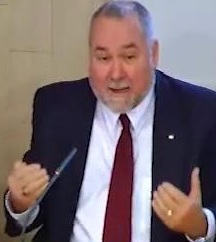
Crowdsourcing our economic recovery
Van Jones
CNN, 8 January 2012
Editor's note: Van Jones, a CNN contributor, is president and founder of Rebuild the Dream, an online platform focusingon policy, economics and media. He was President Obama's green jobs adviser in 2009. He is also founder of Green for All, a national organization working to build a green economy.
(CNN) — We are not living up to the promise of the American Dream.
Even now, our leaders are talking about cutting, instead of creating jobs to grow our way out of the deficit. Congress is ignoring big problems, congratulating itself on avoiding a fiscal cliff of its own creation. The federal budget props up broken parts of our economic system — big banks, big polluters and big defense contractors — instead of investing in areas such as education and infrastructure that would benefit everyone.
Now, a new breed of companies is leveraging the power of networks and sharing — and showing us what a more sustainable, prosperous future can look like.
One of the most well-known examples is Zipcar. Its tagline, “wheels when you want them,” pretty much sums up the company. Zipcar was just bought by rental giant Avis Budget Group for nearly $500 million as part of Avis' push to compete with Hertz's and Enterprise's new car-sharing services. The demographics of car-sharing customers holds promise for future growth as younger, tech-savvy consumers tend to prefer sharing services.
Then there is Mosaic, a new addition to the share economy. Mosaic just launched the first online clean energy investment marketplace.





